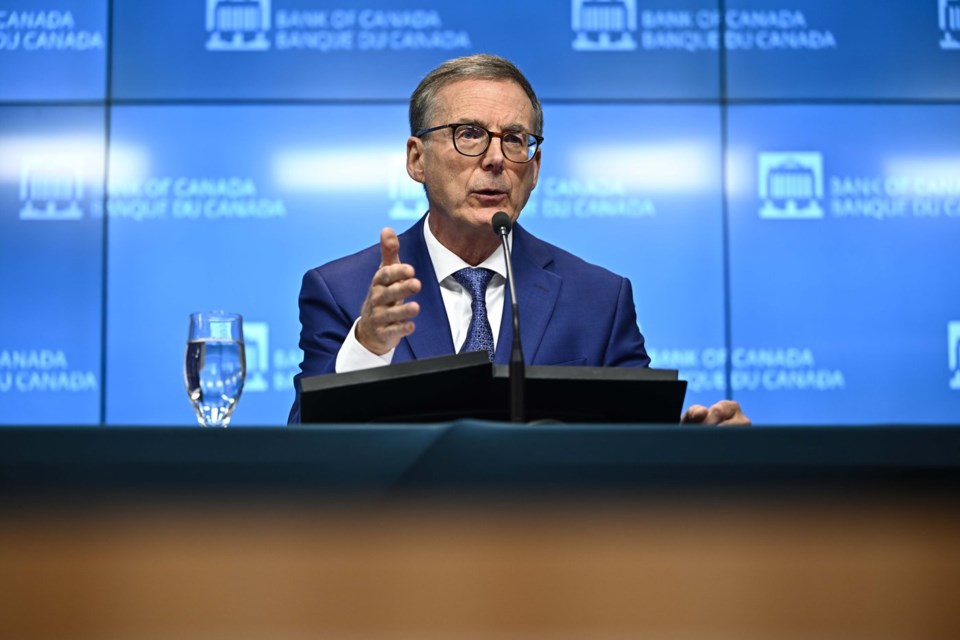Canada needs to seize opportunities to secure its place in the changing global trade landscape, Bank of Canada governor Tiff Macklem said.
In a speech to the Canada-UK Chamber of Commerce in London on Tuesday, he said international trade is being rewired, recast and redirected.
"We need to be effective at the international table to influence how trade is recast and redirected," Macklem said in prepared remarks.
Macklem noted the Bank of Canada doesn’t set trade policy, but it needs to understand the shifts because of how they drive costs and inflation.
"Going forward, with globalization slowing, the cost of global goods may not decline to the same degree. All things equal, this could put more upward pressure on inflation," he said.
"Trade disruptions may also increase the variability of inflation."
The governor's speech comes after the central bank, which aims to keep inflation within a target range of one to three per cent, cut its key interest rate target last week by a quarter of a percentage point to 4.25 per cent.
Macklem repeated comments made last week that if the economy continues to evolve as the central bank is expecting, it is reasonable to expect further interest rate cuts.
Globe trade growth has slowed in recent years, while public and political support for open trade has lessened. Geopolitical tensions have changed key trading relationships.
China has become a key exporter of high-tech electronics and built the world's largest electric vehicle industry, while concerns about national and economic security has prompted the United States to ban the use of some Chinese products.
The U.S. and Canada have also moved to impose tariffs on Chinese EVs — which are much cheaper — as both countries invest in building domestic EV supply chains.
Macklem noted the Canada-U.S. trade relationship is very valuable to both countries.
"I think continuing that strong relationship is going to be very important for Canada," he said.
The nature of what is being traded is also changing as trade in services has increased.
The governor said Canada needs to invest in trade infrastructure and reduce trade barriers as shifting supply chains represent risks as well as opportunities for Canadian business.
Canada needs to invest in the electricity grid and transportation infrastructure, while businesses need to invest in new equipment and innovation to remain competitive, he says.
Macklem said global trade has slowed and the growth that is happening is shifting from goods to services, while China’s role is also changing.
“We need to build better relationships, produce the products people want to buy, build and maintain the infrastructure to get those products to market, and boost our productivity to compete globally,” he said.
This report by The Canadian Press was first published Sept. 10, 2024.
Craig Wong, The Canadian Press



